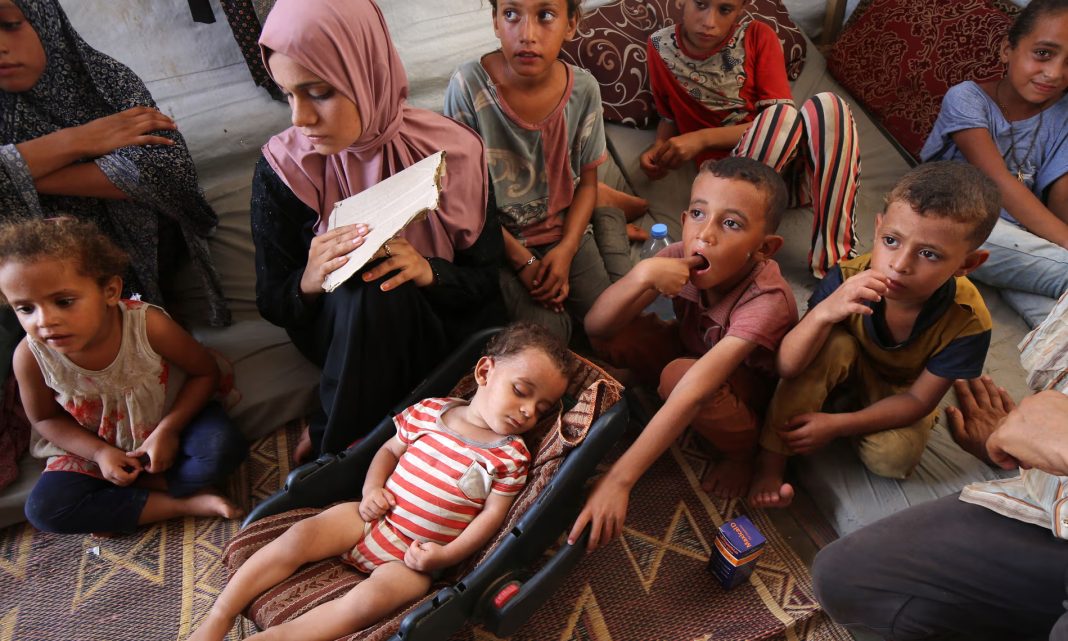On Monday, UN aid operations in Gaza were halted after an Israeli order forcibly ejected Palestinians from Deir al-Balah, in central Gaza, where the UN’s operation centre is located.
The order came as the UN prepared to begin a campaign to vaccinate around 640,000 children under the age of 10 in Gaza against polio after a 10-month-old baby was paralysed by the type 2 poliovirus in the first confirmed case of polio in the enclave for 25 years.
Without a humanitarian pause, aid workers are warning that the campaign would fail to reach enough children to stop the spread of the virus.
There are fears that the virus could spread quickly due to the poor sanitation conditions and overcrowding in Gaza’s camps that are now sheltering hundreds of thousands of displaced people.
The UN says Israel issued a record 16 evacuation orders in August, forcing 12 percent of the enclave’s population to move within a few days.
“Mass evacuation orders are the latest in a long list of unbearable threats to UN and humanitarian personnel,” Under-Secretary-General Gilles Michaud said in a statement on Tuesday.
“Like most Palestinians in Gaza, we are running out of safe spaces for our own staff,” he added.
Jonathan Crickx, a spokesperson in the region for the UN child welfare agency, Unicef, told the Guardian that “one thing for sure is that it’s almost impossible to lead a polio vaccination campaign at scale in an active combat zone”.
While the Israeli army cooperated in the delivery of 25,000 vaccine vials on Sunday, its commanders have not yet agreed to pause the bombing to ensure safe and effective immunisation efforts.
Beyond the constant displacement, Human Rights Watch (HRW) said on Monday that Israel’s attacks on healthcare infrastructure and water supplies, as well as the ongoing obstruction of aid, are contributing to a “potentially catastrophic polio outbreak” in the Gaza Strip.
“If the Israeli government continues to block urgent aid and destroy water and waste management infrastructure, it will facilitate the spread of a disease that has been nearly eradicated globally,” Julia Bleckner, senior health and human rights researcher at HRW, stated at the time of the report’s release.
